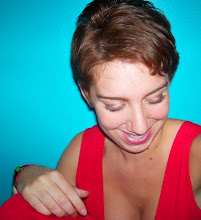Work at the training center is going well. My girls are used to me sitting with them, watching over their shoulder, taking notes. There hasn’t been any emergencies since Shona’s accident, gratefully, so days go by with ease.
Shona hasn’t been in to the center since her accident, and didn’t attend her certificate ceremony. Tuesday morning, I ask the girls how she is doing.
“Oh, Shona is better, but her daughter is hurt—a pot of boiling rice water fell on her.”
Minutes later, I’m back on a rickshaw with one other girl and a staff worker, heading to Shona’s house. Driving through the morning fog, we are back at the same slum. I feel less jerks bouncing around the roughly paved roads, going with the flow of the devastating surroundings. As we climb through the entrance of the cluster of homes where she lives, the curious crowd of 20 people follows.
Shona begins to cry as we enter the small one-room, dirt floor hut that she calls a home. Sitting on her bed with her feet flat under her, her little daughter sits on her left hip, donned in a ski cap and wrapped in a shawl. The first and last time I met this beautiful, long-lashed baby girl, she looked at me and crawled into my lap as if we were old friends. Many children stare at me in wonder, and my auntie’s nephew cries every time he sees me. But this little one isn’t afraid or intensely curious of my eyes or skin, and just relaxes.
Now I see her, sitting on her mother who holds the baby’s right arm out and away from the shawl. Her neck is covered in round, tender bubbles where her skin boiled from the water, down her shoulder. On her arm is 6-inch burn, her skin yellow and shiny. Dried blood surrounds her wrist and elbow. Biting back my own tears, I wipe away Shona’s as her pressed her daughter’s head into her breast.
We chat with her a bit, looking at the medicines the doctor gave her and allow her to vent to us. With the door crowded, the staff worker shoos them away to give them some space and privacy (not a common habit in Bangladesh.) One little girl stayed, hanging around the door, inching closer over the visit until she was sitting on my knee.
I gave Shona a small Christmas gift, as I did with the rest of the girls, and she wore her new earrings right away. As I hugged her to leave, I slipped her some more taka. With neighbors still watching, I didn’t want to be obvious. And I couldn’t help but look to the skies and say, “She just healed herself, and now her daughter is in pain. All their money is being spent on medicines because of accidents. She can't work because she's taking care of her baby, and her husband's a deadbeat. How can this happen twice to the same family in one month?”
It was an easier visit than the first, I suppose the misery is becoming routine to me too. Bouncing back in the rickshaw, holding the other woman’s hand, I wondered if it was harmful or helpful to become numb to grief out of survival. I arrived at the center with no answer.





No comments:
Post a Comment